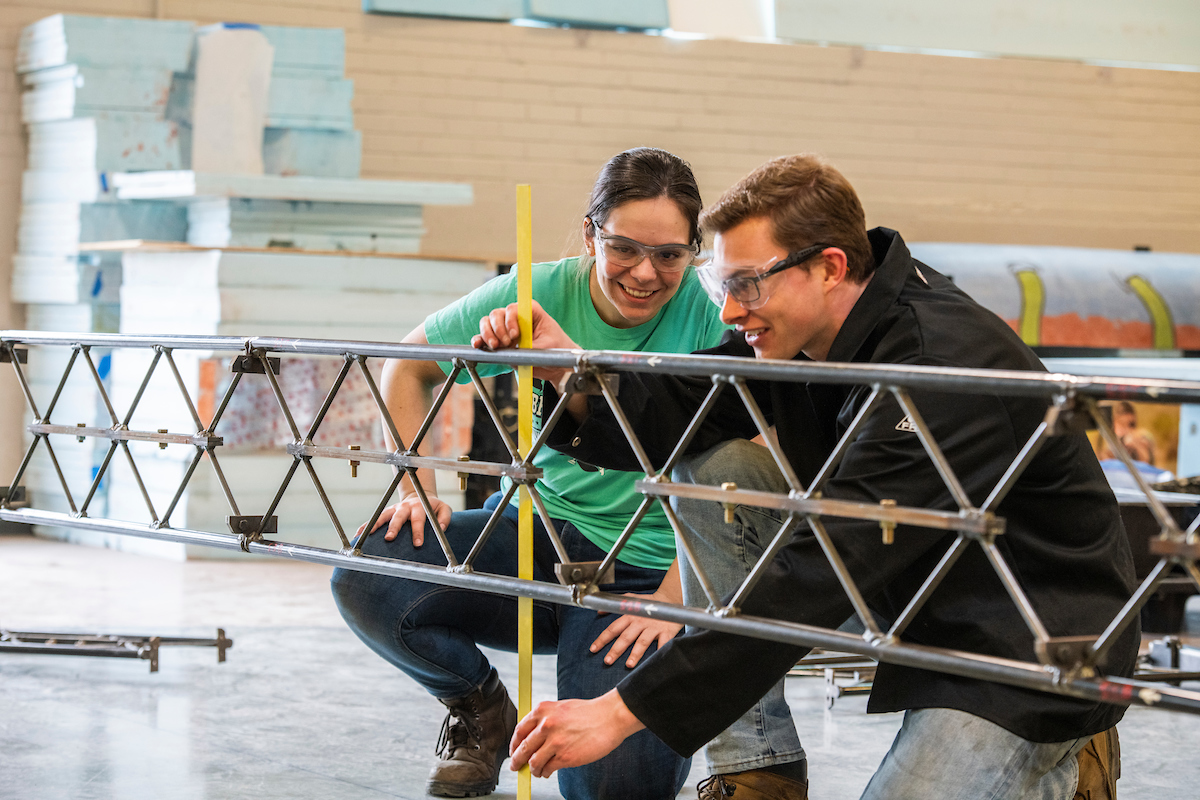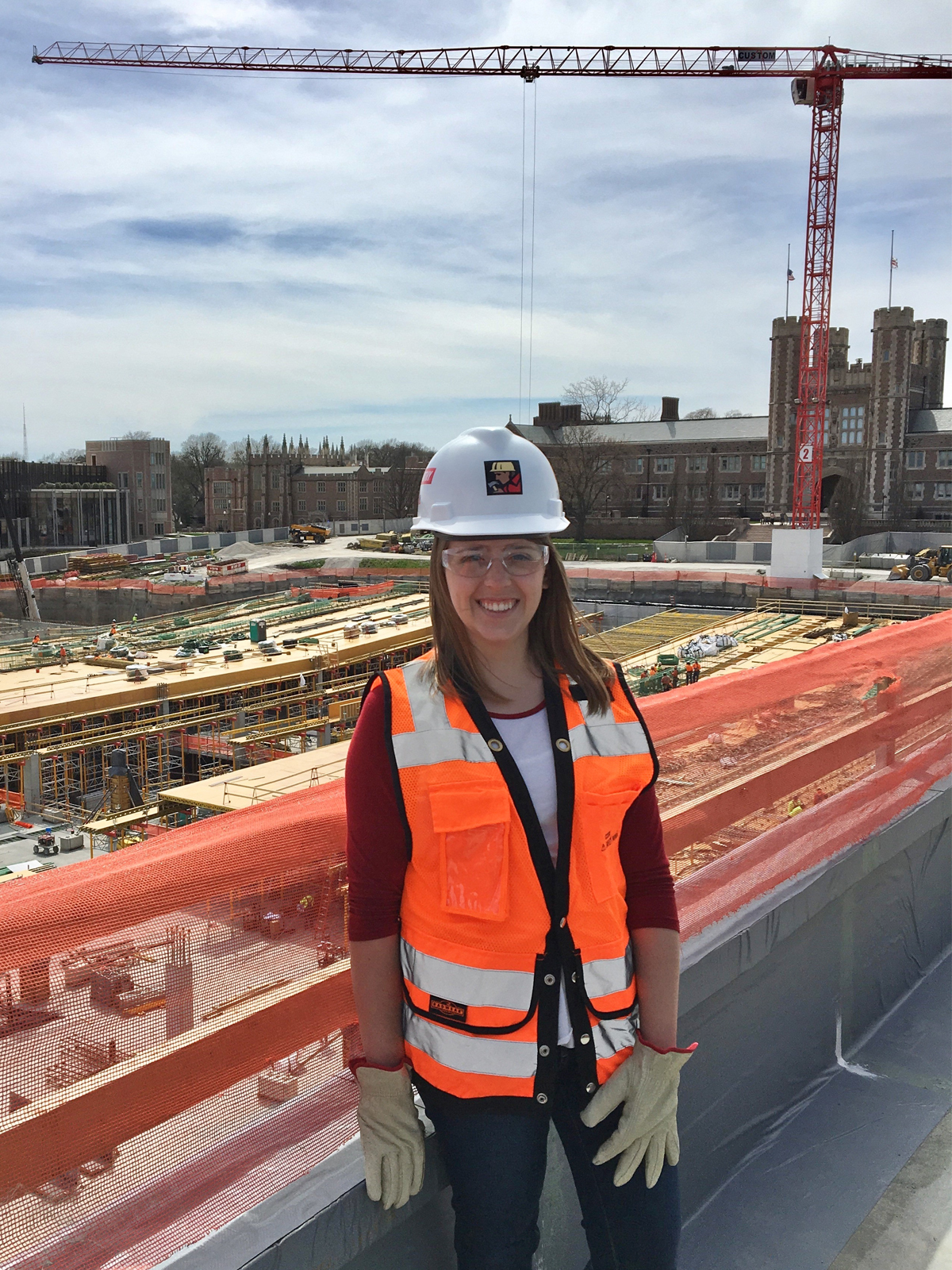Civil, Architectural, and Environmental Engineering
Bachelor's Degree in Civil Engineering
Earn a Bachelor's Degree in Civil Engineering
Build a better world by applying today.
Civil engineers design and build some of the world’s biggest, most vital structures, from interstate highways and bridges, to dams and airports, to water-treatment plants and power stations. They typically work for engineering, construction, or architectural firms, environmental agencies, rail and ground transportation groups, and power plants. Our alumni are in great demand for the rapidly growing fields, and we believe in preparing our students through active and experiential learning in our laboratories and in our design and service teams such as the Steel Bridge Design Team, Concrete Canoe Design Team, Engineers Without Borders, and Solar House Design Team.
Want to Know More?
Get info on our program, scholarships, how to visit campus, admissions and more. Take the next step in solving for tomorrow!
Degree Information
Foundational Engineering
As an incoming student, you'll work toward completing common first-year courses while acquiring information to help you determine a major and career. During the first two or three semesters on campus, you will take a set of courses that are required by all engineering departments. After successfully completing the common first-year academic requirements, you'll formally apply for admission to the environmental engineering program within the department of civil, architectural, and environmental engineering. Admission is nearly automatic if you've completed these requirements.
Learn more about the program:

Cooperative Engineering Program
Want to earn Missouri’s most valuable engineering degree but can’t come to Rolla? S&T offers a civil engineering degree at Missouri State University. Our faculty, our degree, on the Springfield campus. Two great schools with one amazing opportunity for your tomorrow.
Undergraduate Emphasis Areas
What Students Say About S&T

“I chose the civil engineering field because of the direct impact I can have on my community and the wide variety of employment options. As a civil engineer, I’ll have the ability to design complex structures, optimize transportation routes, create water/wastewater systems, oversee construction operations, and much more—and Missouri S&T has prepared me for so many possibilities.”
— Brendan Schmidt

"I dual majored in civil and architectural engineering to Change the World. I was drawn by the challenging S&T architectural and civil programs that have given me great opportunities in issues like climate change, overpopulation, adequate housing and so much more. I’m excited to see what’s possible with my degree programs.”
— Brenan Pool
Your Career in Civil Engineering
Civil engineers take a broad spectrum of courses and engage in all parts of building our society. Learning and coursework ranges from fundamental construction materials to entire transportation networks to planning and building entire cities to protecting the public health from environmental disease. At its core, civil engineering is about building a better, more sustainable society.
Civil engineering is a broad field, and you can specialize within a given area most related to your interest and abilities. In almost any area, you will be interacting with specialists such as architects and engineers in other disciplines to conceptualize, plan, design and build our global infrastructure.
Civil engineers who chose a path in leadership must also be effective public communicators. You may be expected to work with property owners, concerned citizens, city officials, government agencies and even doctors for concerns related to public health measures.
Here is a sample of the industries that hire civil engineers:
- Consulting firms
- Industrial facilities
- Government (transportation, environmental protection, etc.)
- Private construction companies
- Peace Corps
- Cities and municipal governments
Starting Salary
The average salary for S&T students in the last year was $63,892.
Career Fields
- Geotechnical engineer
- Structural engineer
- Water resource engineer
- Transportation engineer
- Construction engineer and management
- Building materials and properties engineer


Follow Civil, Architectural and Environmental Engineering